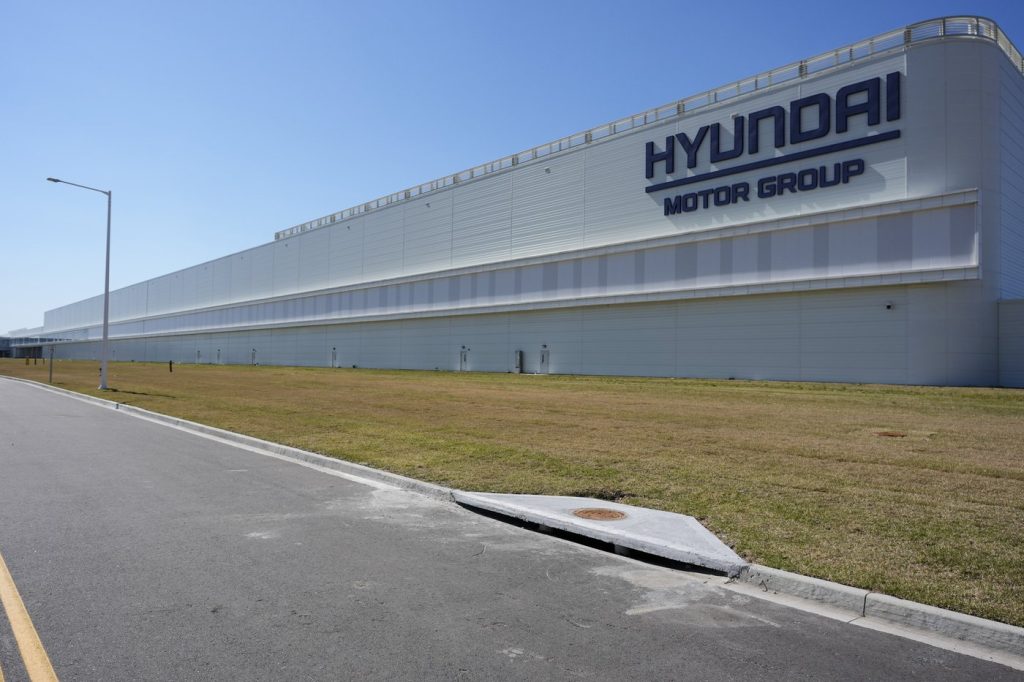On a significant day in Georgia, hundreds of federal agents executed a large-scale raid at a Hyundai manufacturing site dedicated to electric vehicles, detaining 475 individuals, the majority of whom were South Korean nationals. This operation stands out not only for its size but also for its specific targeting of a major economic project in the state, which officials have long touted as one of Georgia's largest development initiatives.
Among the detained workers, many were employed at the HL-GA Battery Co. plant, a joint venture between Hyundai and LG Energy Solution set to begin operations next year. Reports indicated that some detainees had entered the U.S. illegally, while others had overstayed their visas or entered on visa waivers that prohibited employment. An immigration attorney representing two detained individuals mentioned that his clients had utilized a visa waiver program intended for tourism or business visits of 90 days or less. As of now, none of the detained workers have faced criminal charges, and the investigation remains ongoing.
Hyundai, in a statement, asserted that none of its employees were detained and emphasized its commitment to reviewing its supply chain practices to ensure compliance with U.S. employment regulations. Meanwhile, LG Energy Solution was not able to provide immediate confirmation regarding the detained employees. The South Korean government has expressed concern, sending diplomats to the site, with officials emphasizing that the rights of their citizens should not be infringed upon during U.S. law enforcement operations.
The raid was conducted following months of investigation into allegations of unlawful hiring practices at the manufacturing location. Court documents revealed that agents sought a variety of employment records, including timecards and photographic evidence of workers on-site. However, prosecutors are still unclear about which entity or contractor was responsible for hiring the "hundreds of illegal aliens." The U.S. Attorney's Office acknowledged that the identity of the companies involved was still under investigation.
This site, a massive $7.6 billion plant that began producing electric vehicles a year ago, currently employs about 1,200 people in Bryan County, roughly 25 miles west of Savannah. The facility has undergone significant development, with an adjacent plant under construction aimed at battery production in partnership with LG Energy Solution. This area has seen demographic changes, with an increase in the Asian population, particularly among those of Indian descent.
The immigration raid is particularly notable as one of the largest single-site enforcement operations in the history of U.S. immigration enforcement agencies, specifically under the current administration. This raid, involving the detention of South Korean nationals, is significant given that only 46 Koreans were deported out of over 270,000 removals across all nationalities in the previous year.
Reactions to the raid have been mixed within the community. While some local officials, including Georgia's Republican governor Brian Kemp, have reiterated the expectation of legal compliance from employers, advocacy groups such as Asian Americans Advancing Justice-Atlanta condemned the operation as "unacceptable.” Local residents expressed concerns about the impact of the raid on business and community dynamics. For instance, Sammie Rentz, who operates a nearby supermarket, reported a decline in business and apprehension among local Koreans regarding their future in the area. Meanwhile, some residents voiced frustrations over the lack of local hiring for construction jobs at the site, indicating a disconnect between the project’s benefits and local community needs.
The raid has shed light on the complexities of employment law enforcement within a booming sector and the intricate balance between immigration policies and local economic development. As the investigation unfolds, it may bring further implications for the labor force and economic relationships within Georgia.










